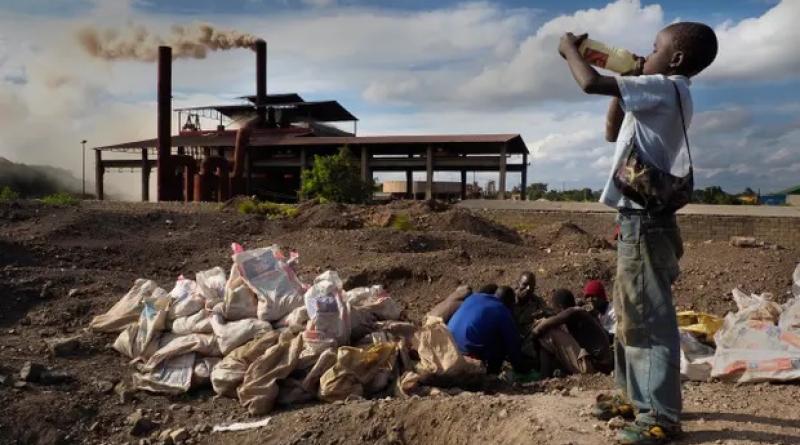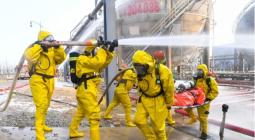Millions suffering in deadly pollution ‘sacrifice zones’, warns UN expert

A UN expert has warned of the creation of pollution “sacrifice zones” across the world, where tens of millions of people are suffering strokes, cancers, respiratory problems and heart disease as a result of toxic contamination of the environment.
“There are sacrifice zones all over the world, in every region: in the north, in the south, in the east, in the west, in rich countries, in poor countries,” David Boyd told the Guardian.
Boyd, the special rapporteur on human rights and the environment, cited physical health issues, including cancer, heart disease, respiratory illness, strokes and reproductive health problems, as well as “incredible mental health problems associated with living in these places because people feel exploited, they feel stigmatised”.
All of this infringed their human rights, Boyd said. “Their rights to life, their rights to health, and … their right to a clean, healthy and sustainable environment. You cannot reconcile that fundamental right to a healthy environment with these absolutely horrific environmental conditions.”
In a report due to be presented to the UN human rights council on Thursday, Boyd says pollution contributed to twice as many premature deaths as Covid-19 in the first 18 months of the coronavirus pandemic.
Giving the death toll from pollution in that period is a staggering 9 million, the report adds: “One in six deaths in the world involves diseases caused by pollution, three times more than deaths from Aids, malaria and tuberculosis combined and 15 times more than from all wars, murders and other forms of violence.
“The toxification of planet Earth is intensifying,” Boyd’s report warns, pointing out that even as some harmful chemicals are banned or abandoned, overall production of chemicals doubled between 2000 and 2017, and will double again by 2030.
And while everyone was affected to some degree, some communities were being hit far more than others. “If you look at these places that I’ve highlighted in the report, pollution on our planet today is pervasive, it’s affecting everyone but it’s affecting some people in a really grossly unfair and disproportionate way,” Boyd told the Guardian.
“The United States, one of the wealthiest countries in the world, one of the wealthiest countries in all of human history, is home to one of the worst sacrifice zones on the planet. This place, it’s called ‘cancer alley’, in Louisiana, where there are more than a hundred oil refineries, petrochemical plants, etc,” he said.
“And guess where they’re located? In poor, predominantly black communities. It’s just, as I said, it’s unconscionable.”
Other sacrifice zones included:
- Kabwe, Zambia, where 95% of children had elevated levels of lead in their blood, putting them at risk of lifelong intellectual impairment,
- The Pata Rât landfill in Romania, where thousands of Roma people live and are exposed to arsenic, lead, mercury and other pollutants.
- The French overseas territories of Guadeloupe and Martinique, in the Caribbean, where 90% of people were found to have the carcinogenic pesticide chlordecone in their blood.
Businesses were the main culprit, with most happy to overlook social and environmental costs in favour of their bottom line, Boyd said, adding that money was “the main barrier to addressing the climate crisis, to addressing biodiversity loss and to addressing pervasive pollution”. He called on governments to impose strong regulation on corporations causing pollution – and to stop spending an estimated $1.8tn a year on subsidies for environmentally damaging industries.
“[Oil and gas companies are] not going to voluntarily stop producing oil and gas; big coal companies are not going to voluntarily shift from being big coal companies to being big solar and wind companies: governments have to do that, that’s their job, it’s governments that have the obligations to respect, protect and fulfil our human rights,” Boyd said.
But there was cause for optimism, he said. Boyd’s report comes six months after the human rights council recognised for the first time that everyone had a human right to live in a clean, healthy and sustainable environment.
“And this is really a key point,” he said. Previous agreements on biodiversity, climate change and pollution were formerly unenforceable. “But guess what: when you weld the international environmental agreements together with human rights law, human rights law brings into the equation institutions, processes, accountability.
“That’s what’s really exciting about this UN recognition of a right to a clean, healthy and sustainable environment – it signals this union of human rights law and environmental law which can be an extremely powerful catalyst of the kinds of transformative changes that we so desperately need.”
Author: Damien Gayle
Photograph: Larry C Price/Larry C. Price





